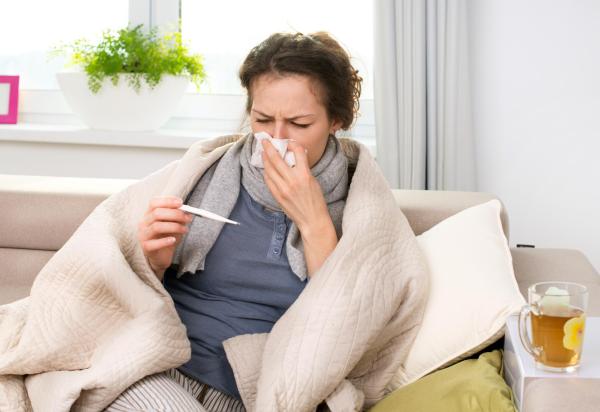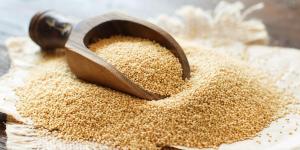How do Seasonal Changes Affect Us?


Most of us can't wait for the seasons to change. All winter we cannot wait until spring saves us from our frosty doldrums, but by the end of summer we just want to wear a shirt without worrying about sweat patches. As US author John Steinbeck once remarked, “what good is the warmth of summer, without the cold of winter to give it sweetness”. Unfortunately, many of us see increases in colds, hay fever or other ailments which seem to be precipitated by a changing in the seasons. But just how do seasonal changes affect us?
In oneHOWTO, we look at the effects of season change in humans. We see how drops or rises in temperature might affect our bodies and whether there is truth to ideas such as summer colds.
Effects of seasonal temperature drop in humans
Although we call it the ‘common cold’, it is not temperature which directly causes us this pathology. It is the result of a viral infection which affects the upper respiratory tract. However, a drop in environmental temperature does increase our changes of developing such an infection. Lower temperatures means our immune system needs to work harder to help keep our various tissues healthy.
Climactic changes affect the skin, lungs, blood vessels and even our bones. This is especially the case with those of us who are more sensitive, such as the elderly or people with compromised immune systems. Some of the most important changes when temperatures fall include:
- Respiratory diseases become more common in winter due to the drop in temperatures. This is because it affects thermoregulation and our respiratory system. Colder weather can cause paralysis or decreased mobility of the cilia, i.e. the small hairs of the nasal epithelium and trachea bronchial tree. These help the mobility of mucus and fight against viruses introduced into the respiratory system.
- Colds due to changes in temperature are very common in winter because of sudden contrasts in temperature. When we enter a warm space after being in the cold, it has an effect on the human body. The drastic thermal changes weaken the immune system and promote seasonal colds, allergies, general malaise and other ailments.
- Vasoconstriction is one of the most important effects of temperature drops on the human body due to seasonal changes. These consequences are changes experienced at the cardiovascular level, leading to an increase in heart rate and blood pressure. In the nasal area, it causes the mucus to be denser, in turn reducing the ability to eliminate inhaled viruses.
- Factors related to vasoconstriction are compounded by staying longer in places without ventilation. This is because it increases the risk of catching respiratory viral diseases such as flu, pneumonia or the common cold.
- A change of weather and drops in temperature can also affect us psychologically. The reduction of hours of sunlight , typical of winter and colder countries, has an affect on our brain. It can mean that we produce less of the substances responsible for good mood, such as dopamine or serotonin. The result is decreased activity and a general malaise, something which is sometimes referred to as seasonal affective disorder (SAD).
The problems derived from the change of temperature to cold do not have an immediate effect on each person. Nasal congestion, irritability or muscle pain and discomfort to light appear a few days after exposure to the new climate.

Effects of seasonal temperature rise in humans
The change from temperature to heat usually brings health benefits. The increase in degrees of ambient temperature complicates the survival of many viruses, but an extreme rise in temperature can also have negative consequences for the body.
When the body temperature is above 38 ºC/100.4 ºF, it leads to important health effects, such as dehydration, heat stroke, cramps, arrhythmias, syncope, aggravation of previous illnesses and, in the most serious cases, death. The latter usually only affects people who are otherwise vulnerable, but the effects of climate change have seen recent fatalities rise due to heat waves.
Higher temperatures also mean the flora and fauna change. Having more plants around usually means a higher pollen count. This won't affect everyone, but those of us with allergies such as hay fever will experience negative reactions. Although our body is better protected at moderate temperatures we can still feel the affects of viral diseases such as rhinovirus or COVID.
Read more about protecting yourself during the summer with our article on whether hot weather can cause diarrhea.

How to protect yourself from seasonal changes
Now that you know how temperature and seasonal changes affect us, we provide some tips to protect yourself from their effects:
- Avoid prolonged exposure in very cold or hot environments: it is also important that you avoid constant temperature contrasts. This means we should going from the cold outside to hot indoor spaces. Protect yourself from colds by turning the heat on when you arrive home and then warm up slowly. This will also be cheaper and is better for the environment.
- Follow a good diet: provide the body with all the nutrients it needs to strengthen your immune system. Your body will be better prepared to defend itself against viruses and other external agents that put your health at risk.
- Wear suitable clothing: wear several layers in winter to protect yourself from the drop in temperature and less clothing when it suddenly becomes very hot.
- Look for shade and water: use this to cool off and drink when there are sudden changes that go from cold or cool to very hot.
- Always stay very well hydrated: especially in the hottest seasons.
- Maintain regular sleep habits: a good rest is essential to have an optimal state of health and protect yourself from temperature changes.
- The use of masks: normalized with the pandemic caused by Covid-19, is another measure you can take to protect yourself from these changes.
This article is merely informative, oneHOWTO does not have the authority to prescribe any medical treatments or create a diagnosis. We invite you to visit your doctor if you have any type of condition or pain.
If you want to read similar articles to How do Seasonal Changes Affect Us?, we recommend you visit our Healthy living category.






